Black Soldier Fly Seminar Brief
Since establishment, Vanke Foundation has been focusing on environmental issues related to global sustainable development and climate change. In recent years, with the development of the urban waste disposal industry and increasing attention to environmental protection, the Black Soldier Fly (BSF), a treatment method suitable for various types of urban organic waste and capable of reducing greenhouse gas emissions, has gradually noticed by public. In the past few years, Vanke Foundation has been committed to revising the waste reduction methodology under VCS standard to make it more applicable to the urban waste management industry of BSF or other insects.
On February 15, 2025, Verra announced a new version of ACM0022: Alternative waste treatment processes, v3.0 (external) and AMS-III.F.: Avoidance of methane emissions through composting, v12.0, makes these two methods more applicable to insect composting. This will not only help promote the standardized and efficient registration and development of insect composting projects in Verra's VCS project, attract more project developers to participate, but also further enhance the position of insect composting in global sustainable waste management and carbon reduction actions, contribute unique "insect power" to address climate change, and help various regions and organizations transform and develop towards a greener and low-carbon direction.
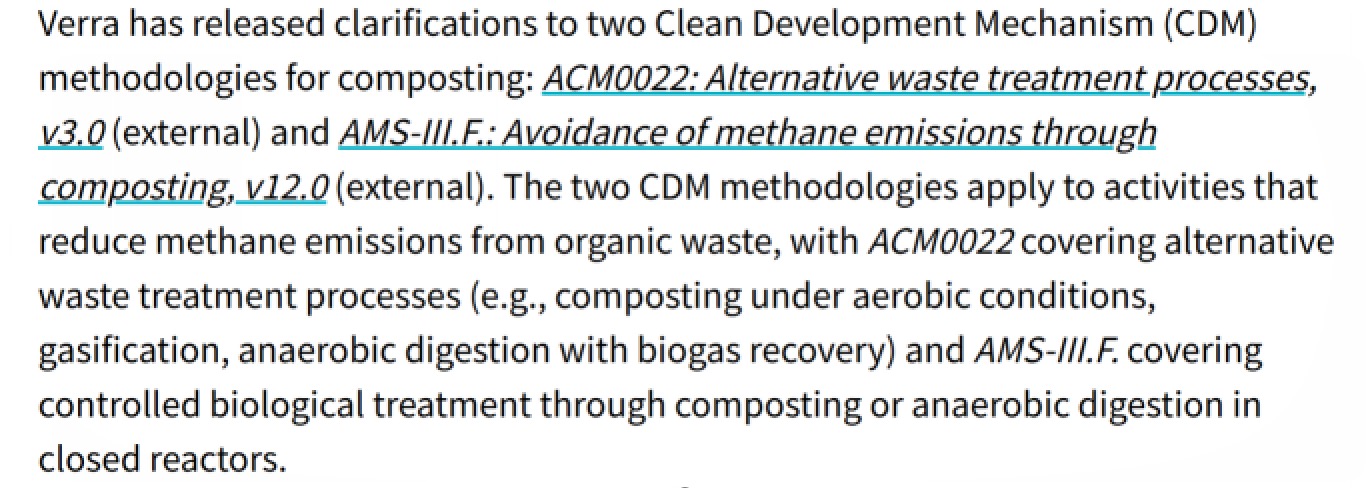
Figure 1 Screenshot of the clarifications of these two methodologies from Verra
On April 8, 2025, Vanke Foundation organized an innovative seminar on BSF and carbon trading. The authoritative platform for methodology development and project trading, Verra, Dutch insect feed producer Protix, Shenzhen INSRPRO Technology, and Macao International Carbon Emission Exchange jointly participated in this seminar.
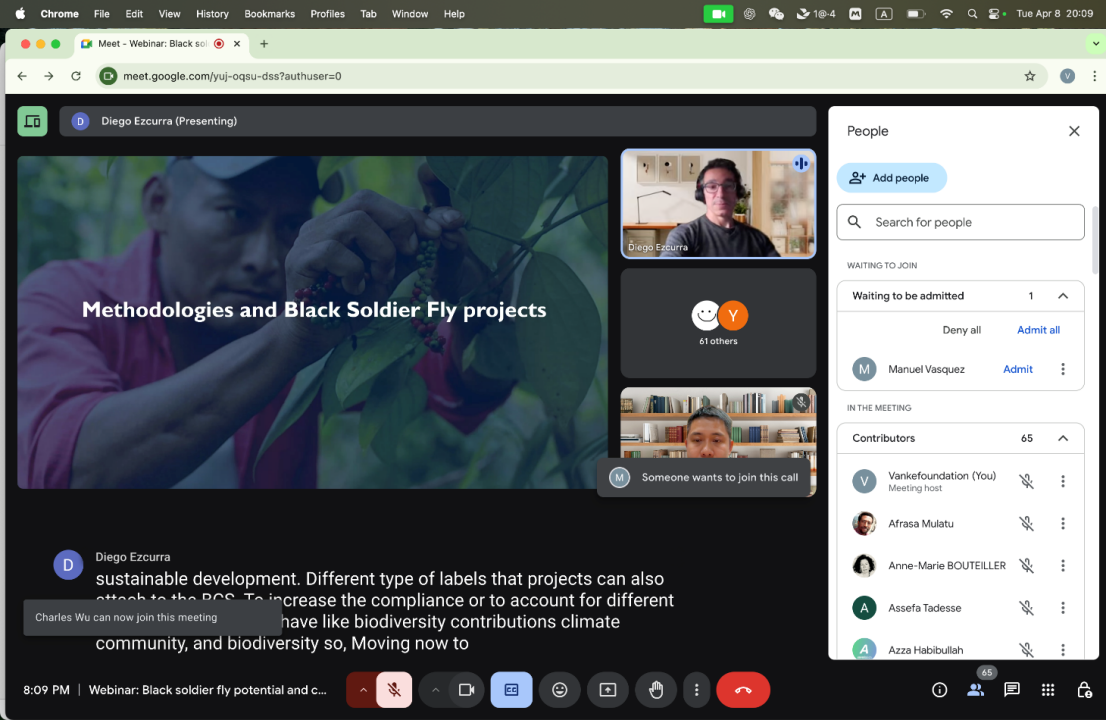
Figure 2 Meeting screenshot
Firstly, Senior consultant of Vanke Foundation, Chris ZHANG introduced the background and the schedule of the seminar and demonstrated Vanke Foundation’s efforts on BSF as above.
Then, Diego, the project manager responsible for managing the BSF methodologies, gave a brief introduction to the development process of Verra and VCS projects. As a non-governmental organization, Verra focuses on developing standards for areas such as climate change and afforestation, providing services to governments, businesses, or organizations. It has climate community and biodiversity standards (CCB), sustainable development and validation impact standards, and plastic waste reduction standards. The development of VCS projects requires following over 40 elements, using specific templates and procedures, selecting appropriate methodologies, conducting independent audits, and registering in the registration system. Meanwhile, Diego also provided a brief introduction to two methodologies applicable to BSF project and the complete process of VCS project from project design to obtaining carbon credits.
Subsequently, Elvis, the founder and CEO of INSPRO SCIENCE LIMITED, introduced the potential of BSF in organic waste treatment, protein feed substitution, and carbon reduction, and highlighted their intelligent project of using BSF to treat municipal food waste in Yantian District, Shenzhen to produce BSF larvae and fertilizers. He particularly emphasized that the project is fully automated and data can be recorded, which will help the project obtain VCS certification. In addition, Elvis also elaborated on their various cooperation models with upstream waste producers and downstream insect recycling product consumers to achieve sustainable development and produce insect-based products by introducing new BSF projects in collaboration with Vanke Foundation and palm oil projects in Southeast Asia.
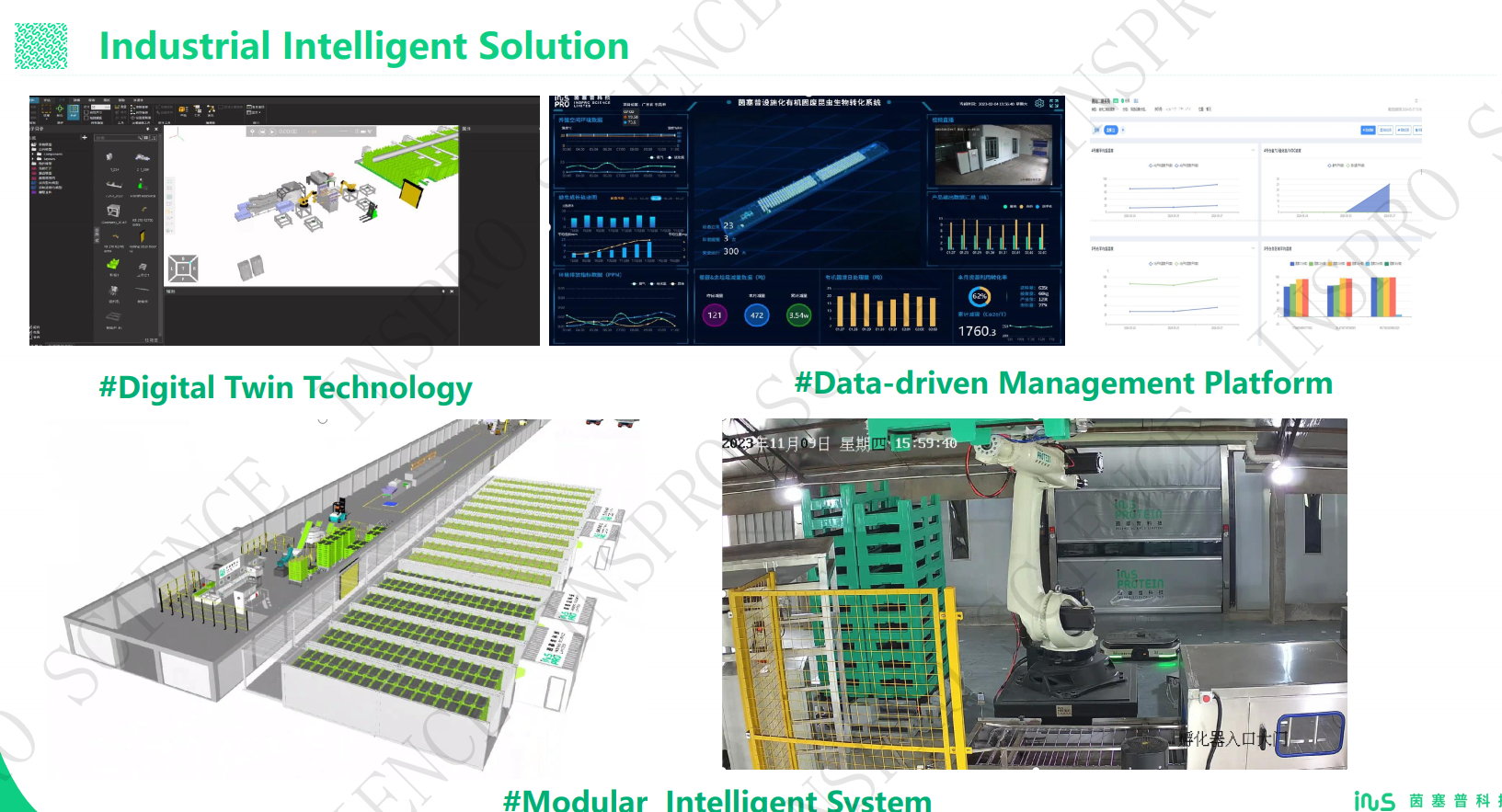
Figure 3 Shenzhen BSF Smart Factory Project
Eric, former R&D director from Protix, introduced the lifecycle carbon accounting of BSF production from the perspective of industrial production. Eric believes that the use of energy and the low biological conversion rate of BSF are the two most important factors affecting the carbon emissions throughout the entire lifecycle of BSF production. To address these two issues, sustainable energy and optimizing factory design can be utilized to improve energy efficiency; Or by improving the ratio and other methods to increase the conversion rate of BSF, more BSF production can be obtained with less feed, thereby reducing its impact on the environment. At present, Protix nutritionist Ray Long Zhang and his team have developed a new BSF feed ratio to reduce environmental impact. In addition, Eric also introduced the process and method of lifecycle analysis for BSF products, which requires determining project boundaries and timelines, selecting standards to calculate emission reductions, and obtaining carbon credits through third-party audits.
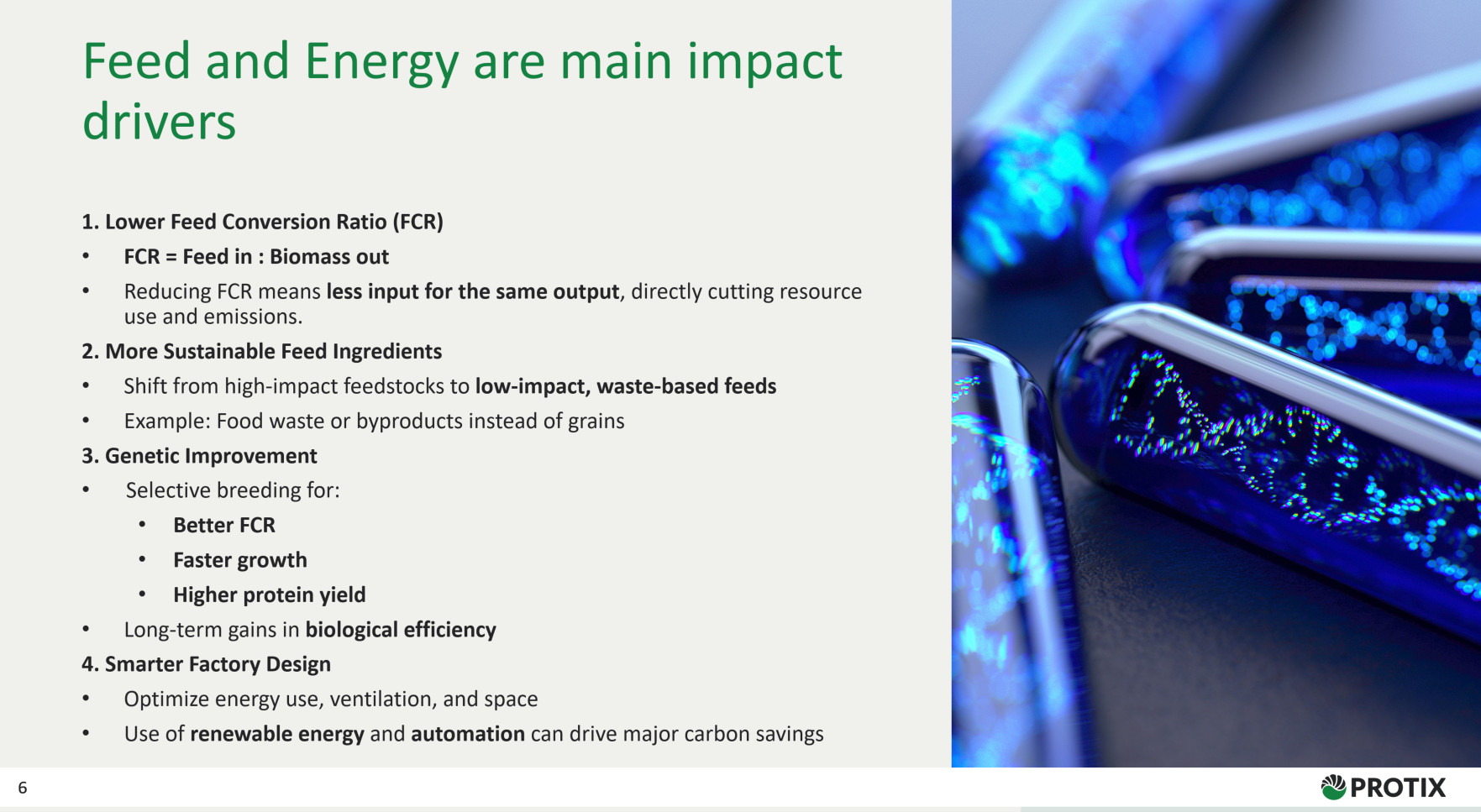
Figure 4 Ways to Reduce Carbon Emissions
Finally, Mr. Li, the director of the Macau International Carbon Emission Exchange (MEX) introduced the overview of the MEX and the potential for developing BSF projects in Macau. MEX, officially launched in 2024, is a pioneering platform in China that provides high-quality standardized carbon credit contracts and focuses on cross-border green trading. Its business scope includes trading, auction, clearing, data and registration. In his speech, Mr. Li also introduced that the BSF project can be applied in communities, hotels, and catering industry in Macau for the recycling of food waste, which can solve the problem of food waste disposal and achieve zero landfill. Meanwhile, the by-products generated by the project can be used in agriculture and aquaculture to form a material closed-loop system. With the help of Verra's revised two methodologies, the project can also rely on BSF methodology to generate carbon credits that can be traded and generate additional economic benefits.
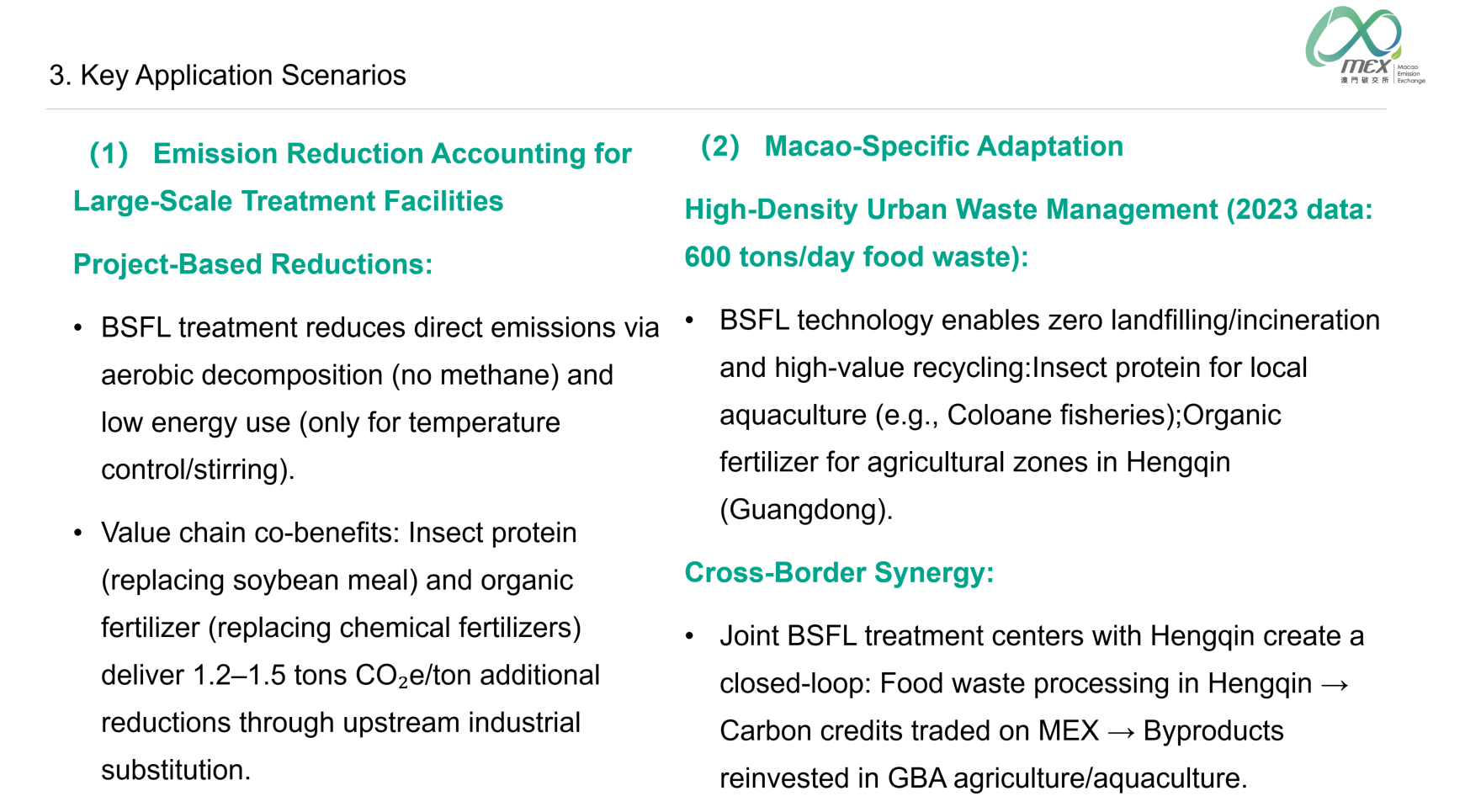
Figure 5 Potential of Applying BSF Project in Macau
During Q&A session, participants exchanged and asked questions on the application of BSF in poultry manure treatment, minimum emission reduction in VCS project development, carbon credit trading prices, applicable waste types, carbon credit validity periods, and greenhouse gas emission reduction quantification methods.
If you would like to obtain more detailed information about this seminar, please scan the following QR code to obtain the complete version of meeting minutes:


Back
